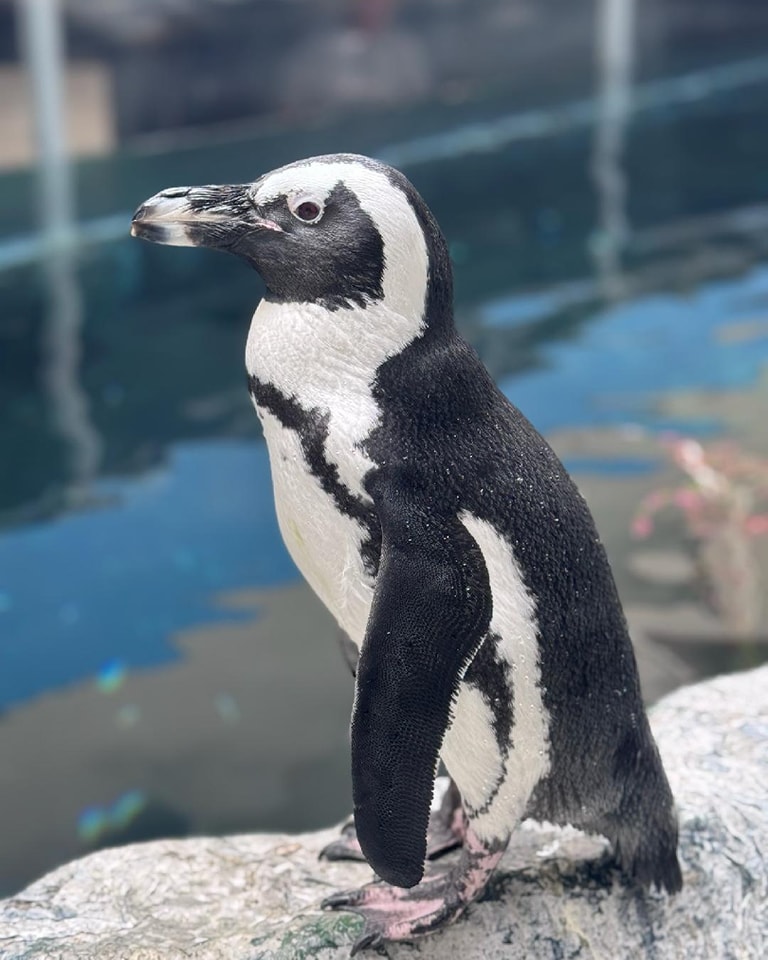- The Impact of Penguin Conservation Competitions on Raising Awareness for Wildlife Preservation
- Community Engagement and Support in Conservation Efforts: A Case Study of Duckie’s Journey
- Penguins International: Playing a Key Role in Global Conservation Awareness
- Understanding the Importance of Conservation and Public Engagement in Zoology and Wildlife Management
- The Significance of Collective Support in Conservation Initiatives
The March of the Penguins Madness competition exemplifies an impactful initiative aimed at raising awareness about penguin conservation. Wildlife competitions such as these play a crucial role in educating the public on the importance of preserving our planet’s biodiversity. Featuring Duckie as a key contender in this event brings critical visibility to conservation efforts, reaching an international audience through compelling engagement.
Historically, people have underestimated penguins, seeing them as charming animals predominantly associated with cold, distant habitats. However, the reality is quite different; these species are frontline sentinels alerting us about broader environmental shifts and climate-related issues. Penguins, therefore, are symbolic representatives of global conservation needs. Events like the March of the Penguins Madness draw attention to their plight, making people invest emotionally and intellectually, thus driving genuine interest and commitment to conservation.
Throughout this competition, an impressive volume of support accumulated behind Duckie. With over 14,251 cumulative votes, including more than 2,400 in the semi-final round alone, his journey is a testament to the power of collective community effort. Such involvement showcases how social engagement can amplify conservation messages beyond traditional educational boundaries. The enthusiasm of the people voting for Duckie underscores a growing awareness and eagerness to participate in wildlife preservation.
Communities dynamically contribute to conservation efforts, defying the misconception that wildlife protection is the exclusive domain of scientists and researchers. Duckie’s progress in the competition was emblematically celebrated, with his supporters sharing insights, creating educational dialogues, and fostering a global network committed to protecting penguins and their habitats. This campaign demonstrated how social media and modern communications can effectively be harnessed to build widespread engagement and spread the urgency of environmental issues.
Penguins International, as the organizing body, plays an instrumental role in hosting the March of the Penguins Madness. Dedicated to research and advocacy, their mission extends beyond mere awareness, encompassing actionable insights into penguin behavior, habitat requirements, and the broad ecological impacts of climate change. By choosing Duckie to partake in this event, Penguins International reinforced the narrative that conservation requires a multi-faceted approach combining education, scientific research, policy formulation, and global and local community engagement.
Penguin conservation is critical for maintaining ecological balance in marine environments where they play a significant role as both predators and prey. The health of penguin populations directly reflects ocean health, aiding in gauging the overall state of marine ecosystems. As global climate challenges intensify, understanding and protecting these birds becomes more than a regional endeavor—it is a global imperative to maintain the diversity and functionality of earth’s ecosystems.
Gaining the community’s attention and action toward these goals demonstrates the substantial potential contained within collective support initiatives. Beyond Duckie’s enlightening journey through the March of the Penguins Madness, we observe that fostering public involvement can lead to tangible outcomes for conservation efforts. Participating in voting, discussions, and educational ventures builds a robust framework wherein both science and public interest combine to drive sustainable stewardship of our natural resources.
The critical importance of public conservation campaigns lies in their ability to bring awareness to issues that might otherwise go unnoticed. Innovatively engaging the audience allows for the democratization of conservation, whereby everyone feels part of the solution to the ecological crises facing the planet. As advocates for environmental stewardship, we are reminded that collective action in conservation can drive significant change, much like the exemplary engagement demonstrated through Duckie’s memorable campaign.
The worldwide implications of penguin conservation are far-reaching. Scientific insights derived from studying penguins and their habitats contribute not only to zoological research but also to understanding climate dynamics, marine biology, and ecosystem resilience. By fostering an environment where the public becomes more invested in the fate of species like Duckie, we lay the groundwork for a more informed and active society, eager to sustain the integrity of our endangered wildlife and natural environments.
*****
Source Description
Unfortunately, Duckie lost his last round in the March of the Penguins Madness competition. It was a close one though, 57% to 43%, with over 2,400 votes for Duckie in round four. We have been consistently amazed at how this community and our followers everywhere have rallied in support to boost him all the way to the semi-finals. Duckie received a cumulative 14,251 votes across all voting platforms. What a contender! 💪
A big thanks to Penguins International for choosing Duckie and hosting such an engaging and informative competition to spread awareness about penguin conservation worldwide.
We thank you all for your support and engagement, and hope you had as much fun rooting for Duckie as our team did. He will always be in our hearts! 🐧❤️


